Upcoming Events
There are currently no upcoming events. Please check back later.
Past Events
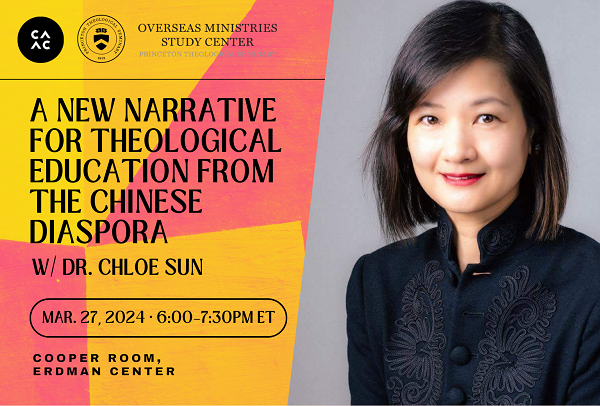
While the dominant narratives in many Western seminaries are narratives of decline, Chloe Sun offers a counter-narrative from the Chinese diaspora, with Logos Evangelical Seminary as a case study. She invites a broader vision and conversation in theological education that includes voices from the majority world in diverse contexts.
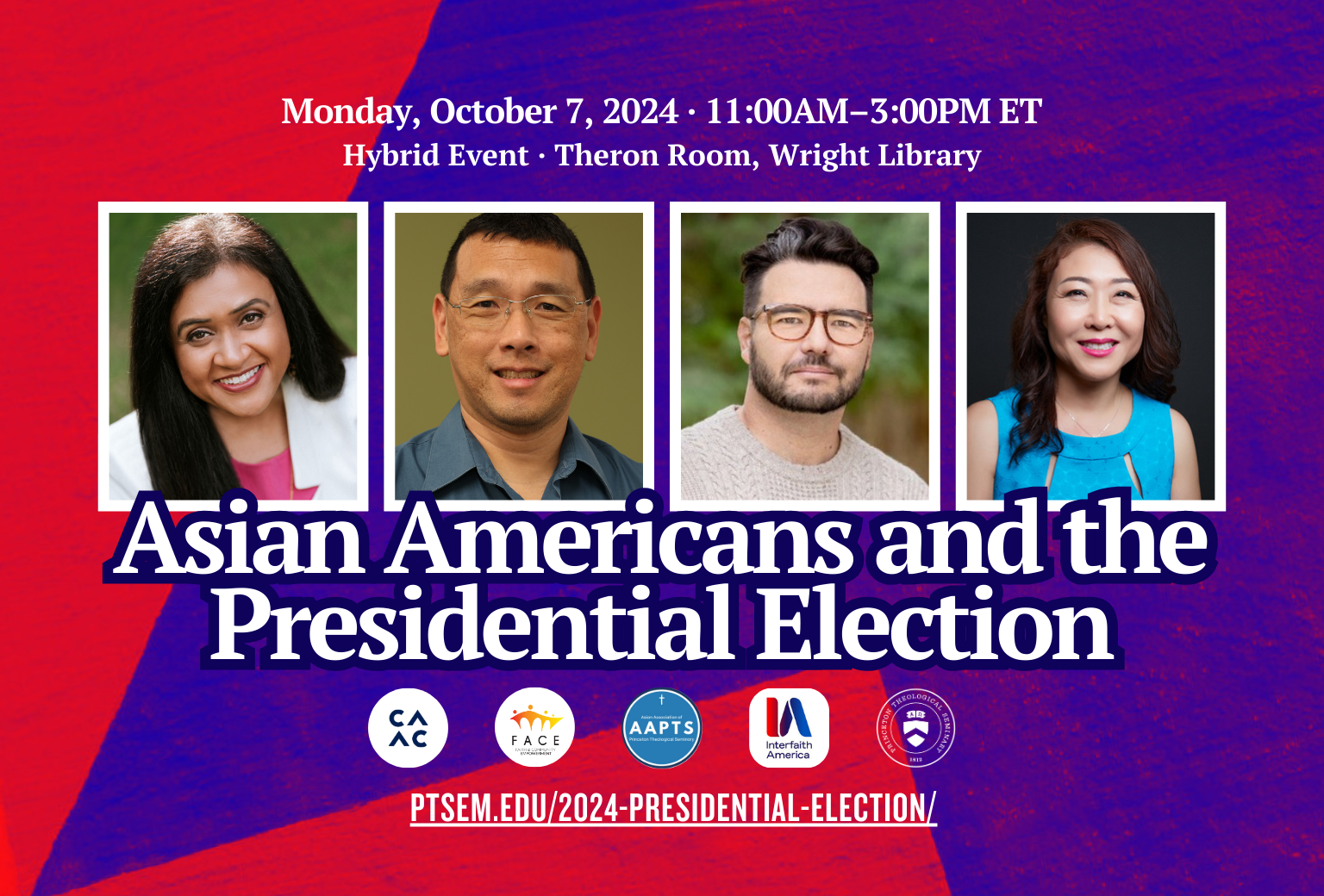
Join us on October 7th, 2024, for a free hybrid event titled “Asian Americans and the Presidential Election,” hosted by the Center for Asian American Christianity at Princeton Theological Seminary. This conference will feature thought-provoking plenary talks and a dynamic panel discussion with scholars Khyati Joshi, Brad Onishi, and Jerry Park, alongside community faith leader Hyepin Im. Together, they will explore the intersection of faith, politics, and civic engagement within Asian American communities. As we approach the 2025 Presidential Election, this event aims to foster open dialogue, raise political consciousness, and promote democratic participation among diverse Asian American groups.
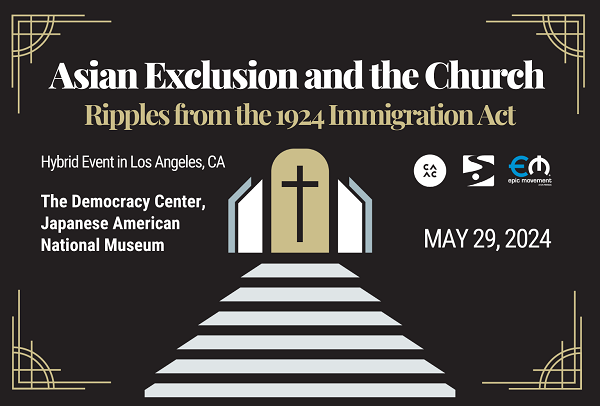
Held on May 29, 2024, at the Democracy Center in the Japanese American National Museum in Los Angeles, the “Asian Exclusion and the Church: Ripples from the 1924 Immigration Act” was a pivotal This free hybrid event, hosted by the Asian American Christian History Institute, Center for Asian American Christianity, and Epic Movement, will convene a gathering of scholars, pastors, and faith leaders from the Asian American Christian community. Together, we will delve into the profound implications of the Johnson-Reed Act of 1924—a legislation key to understanding the trajectory of Asian American communities and their faith practices in the United States.
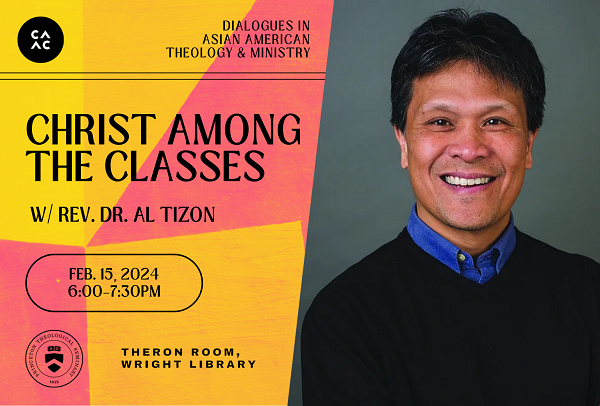
Christ Among the Classes (Orbis Books) paints a picture of Jesus among the rich and the poor of his day and calls the church to imitate Christ among the rich and the poor of our day by the power of the Spirit. In light of Asian and Asian-American cultures, where success is defined and pursued in particular ways, what might this call look like?
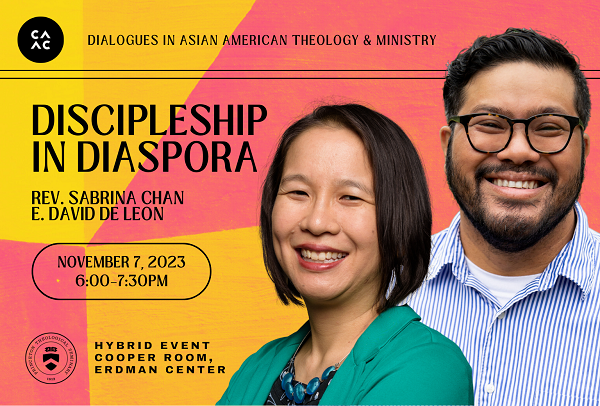
Two authors of the Asian American discipleship book Learning Our Names further develop the themes of their chapters as they’ve engaged with readers and furthered their studies. Being Asian American for most of us means there is no return to our pre-immigration stories, lands, or even pre-colonial identities. Resisting our Racialization and engaging with racial and ethnic justice takes on greater importance as we consider what we want to pass on to future generations. Join us as we bring together our studies, our stories, and our ministry contexts in conversation with each other.
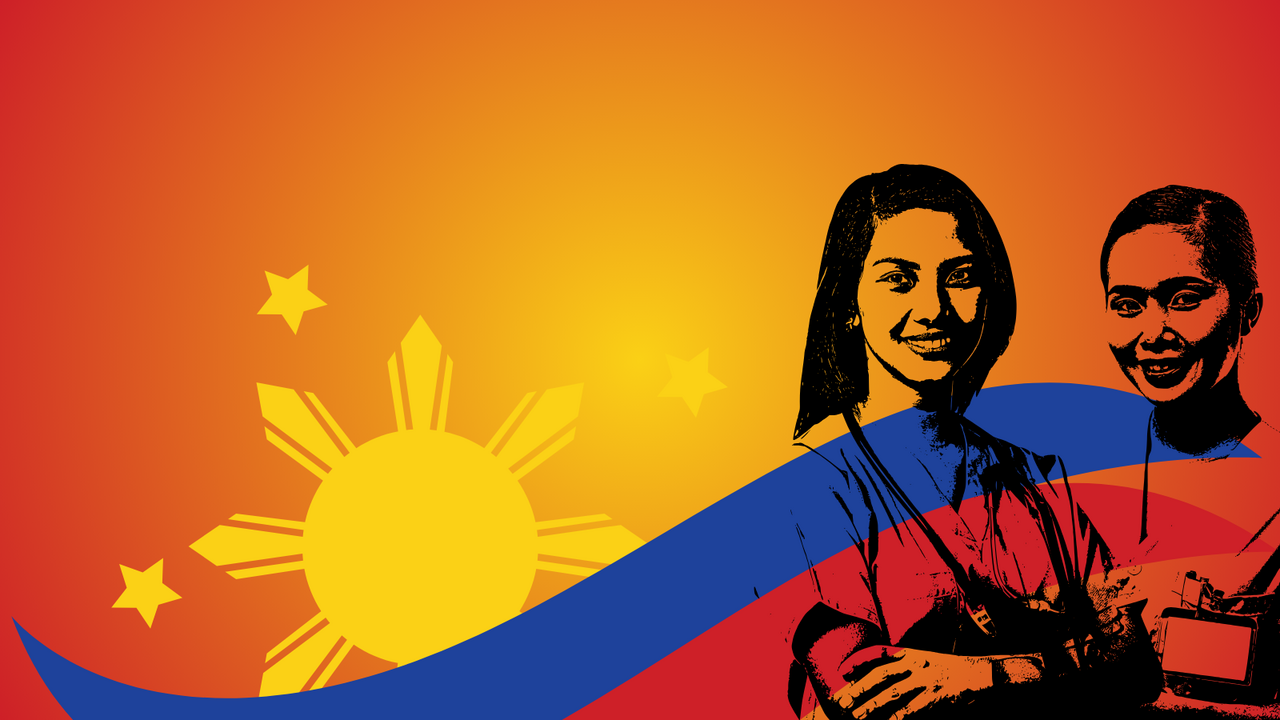
“Healing Heritage: Stories of Faith, Selflessness, and Service of Filipino Nurses,” is a pioneering event that brings together Filipino nurses, researchers, clergy, and Asian American Christian faith leaders to explore how spirituality, culture, and healthcare intertwine. Inspired by the Healing Heritage project—the most ambitious and most comprehensive project to date, this interdisciplinary, multi-institutional, transnational effort highlights the lived experiences of Filipino nurses. We will delve into personal narratives from the COVID-19 pandemic onward, illuminating broader themes of resilience, compassion, and community care.
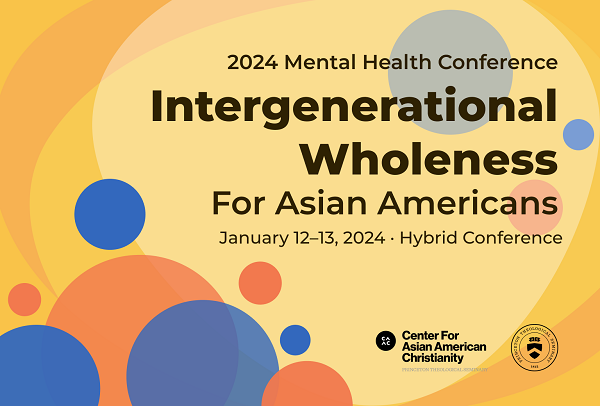
This two-day, hybrid mental health conference, organized by the Center for Asian American Christianity, takes our intergenerational family stories as a point of departure for understanding the pressure points of Asian American life. Asian American church life and Asian American family life often reflect each other: the joys and pains of one are found in the other. Migration helps explain why church life and family life for Asians in the US have much in common.
This conference will examine how migration and loss impact the mental health needs of the Asian American community across different generations. The first day of the conference will host plenary presentations on the joys and pains often associated with migration and how this sets up issues of relational conflict, intergenerational misunderstanding, contested normative values, and different mental health and spiritual needs between generations.
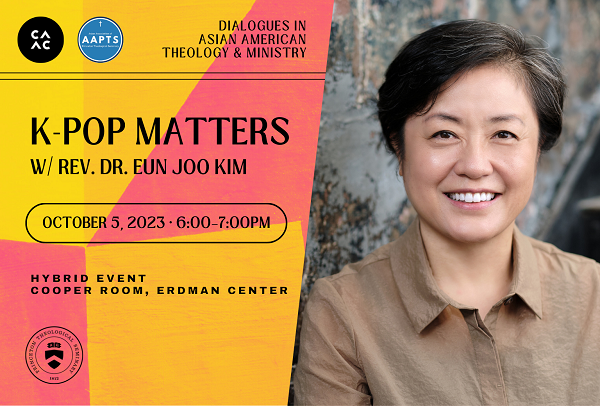
In recent years, there has been an incredible rise in recognition and popularity of Korean cultural contents, ranging from movies to beauty products to TV dramas and music/K-pop. This whole phenomenon, known as Hallyu, has been a fantastic journey for me to enjoy and engage with, especially as a 1.5-generation Korean American immigrant English Ministry pastor who grew up in the states in the 1970’s and 1980’s. But beyond its entertainment value, it has been a fertile source for reflection and exploration on how we, the church, can do better in our ministries with young people and beyond. K-pop matters, let me tell you how.

In a time of rapid social and generational change, how can Asian American Christians find resilience, purpose, and connection? The Navigating Transitions conference offers a unique opportunity to explore how faith and mental health intersect within the distinct experiences of Asian American Christians. With insights designed for ministry leaders, therapists, social workers, and all who seek holistic discipleship, this conference provides a place to engage with life’s deepest transitions—grief, growth, family dynamics, and the quest for meaning. Join us as we delve into these critical topics through theological grounding and mental health expertise, creating space for resilience and renewal along the journey of faith.

With the theme “South Asian American Christian Histories and Futures,” this gathering dives into stories of faith, heritage, and resilience, examining lives that defy narrow narratives of success and assimilation. Through these stories, we aim to illuminate the deeper communal bonds, challenges, and triumphs that have shaped South Asian American Christian life. Anchored in the place of Philadelphia, this conference will feature plenary sessions with notable voices like Sam George, Jaisy Joseph, and Sherry Thomas, who will offer insights specific to the local area while drawing connections to broader national migration trends.
